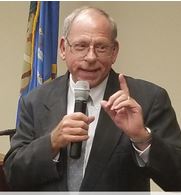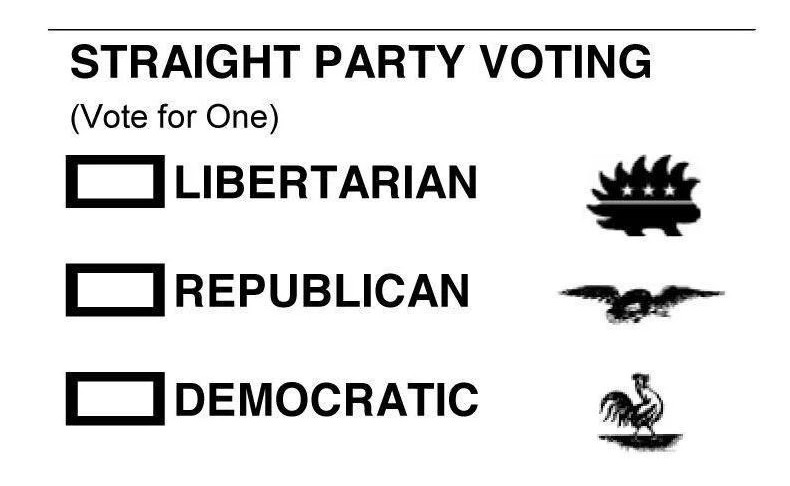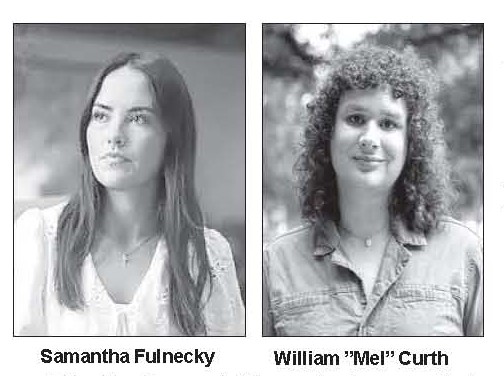Initiative Petition Process Reform Legislation
Voters in every state occasionally see propositions or referendums on their ballots. The legislatures in virtually every state are able to place issues before voters to decide. But only 26 states provide for a statewide citizen-initiated process to place measures on the ballot. Some of those states restrict that ability to repealing or vetoing an enacted law, and not to place a new statute or constitutional amendment on the ballot. Only a minority of states, including Oklahoma, allow citizens to collect signatures to create new law or to change existing law or the state constitution.
Article 5 of Oklahoma’s Constitution says: “The Legislative authority of the State shall be vested in a Legislature, consisting of a Senate and a House of Representatives; but the people reserve to themselves the power to propose laws and amendments to the Constitution and to enact or reject the same at the polls independent of the Legislature, and also reserve power at their own option to approve or reject at the polls any act of the Legislature.”
In Oklahoma, the number of valid signatures required on petitions to place measures on the ballot is based on the votes cast in the last General Election for the Office of Governor. At one time, the number was based on the number of votes cast in the last General Election. So, more signatures were needed if they were being collected following a Presidential election year.
There were 1,153,284 votes cast for the Office of Governor in the 2022 General Election. Signature requirements for the different types of petitions are derived by applying percentages to the votes. A Referendum to keep legislation from becoming law requires 57,664 valid signatures (5%). An Initiative for a non-constitutional change requires 92,263 (8%) valid signatures. An Initiative for a Constitutional Change requires 172,993 valid signatures (15%). These numbers went into effect for petitions circulated after November 16, 2022, and remain valid through November 10, 2026. Signatures must be submitted within 90 days after the initiative is cleared for circulation by the Oklahoma Secretary of State.
Last year, state lawmakers adopted bills that made signature-matching on petitions more stringent and extended the window of time that a legal challenge could be filed on a proposed initiative petition from two weeks to 90 days.
This year, reform legislation was introduced to strengthen the requirements for initiative petitions in order to reduce fraud, minimize abuse of the signature-gathering process, and more fairly represent the values of all Oklahomans, including those in rural areas.
Senate Bill 1027 by Sen. David Bullard (R-Durant) seeks to protect the initiative petition process from outside special interest groups seeking to change Oklahoma’s Constitution and alter state laws. House Speaker Kyle Hilbert (R-Bristow) is the principal author in the Oklahoma House.
Senator Bullard says that what was once a tool for direct democracy by Oklahomans and for Oklahomans has increasingly been manipulated by out-of-state interest groups and wealthy donors to push left-wing policies in a deeply conservative state. “We’re now hearing that the groups that poured money and external resources into campaigns to legalize marijuana, expand Medicaid and push soft-on-crime policies are now among those strategizing on how to legalize abortion on demand through the ballot box and force blanket primaries on our parties,” says Bullard.
One of the proposed changes included in his bill requires initiative petition campaigns to collect signatures from a variety of counties, instead of just concentrating their efforts in highly populated areas. The bill strives to give a broad cross-section of Oklahomans a voice in what qualifies for the ballot by restricting the total number of petition signatures that can come from any one county. Typically, most signatures originate from the state’s two most populist counties, while the other 75 counties are ignored. Bullard said this change will result in campaigns needing to collect signatures from a minimum of around 20 counties.
Bullard’s bill also proposes greater transparency in the initiative petition process by requiring paid signature gatherers to disclose their financial backers and mandating that only registered Oklahoma voters are eligible to gather signatures. Under the bill, only Oklahoma residents or groups could pay signature gatherers. The bill further proposes simplifying the language of petition summaries, or gists, and requiring that these summaries explicitly state whether a petition will have a fiscal impact.
National liberal groups have used the initiative petition process to push through proposals that cannot make it through the legislative process. These are not organic efforts growing within a state, but an outside movement to impose their will on conservative states.
Tony Lauinger, State Chairman of Oklahomans For Life, has urged legislators to support the bill. He notes that abortion promoters have been preparing to launch an initiative petition drive to impose a constitutional right to unlimited abortion on demand on our state.
Since Roe v. Wade was overturned, the abortion industry has used the initiative petition process to ram through pro-abortion measures in six states. Several of their pro-abortion wins were in conservative states: Kansas, Kentucky, Montana. In Kansas, abortion supporters spent $21 million. In Michigan, the abortion industry spent $47 million dollars. “The initiative-petition process plays to the strength of the abortion industry. They have unlimited funds for advertising, a willingness to distort, mislead, and deceive, and a sympathetic pro-abortion media,” says Lauinger.
Bullard says that contrary to some claims, the bill does not shut down the initiative petition process or stop any Oklahomans from participating. “These changes are long overdue to protect Oklahoma’s laws from being hijacked by out-of-state special interest groups pushing an agenda that goes against our local values,” Bullard says. “These guardrails will bring greater transparency to the initiative petition process and give more Oklahomans, not just the urban elites in Oklahoma City and Tulsa, a say in what questions qualify for the ballot. It’s time to ensure that rural Oklahomans have a voice in this process and that our laws reflect the will of the people, not the wealthy outside influences trying to buy their way onto the ballot.”
Senate Bill 1027 passed the Oklahoma Senate 36-8 on March 18, and as I write this, it was making its way through the House and probably would need to return to the Senate to consider amendments. If approved by the Legislature and signed into law, the reforms would apply to all initiative petitions for which the Oklahoma Secretary of State has not yet set dates for signature collection.
Ron McWhirter is one of the founders of the Oklahoma Constitution newspaper and serves as the General Manager. He may be contacted at the newspaper email: okconsti@aol.com










Latest Commentary
Saturday 31st of January 2026
Saturday 31st of January 2026
Saturday 31st of January 2026
Saturday 31st of January 2026
Saturday 31st of January 2026
Saturday 31st of January 2026
Saturday 31st of January 2026
Saturday 31st of January 2026
Saturday 31st of January 2026
Saturday 31st of January 2026
Saturday 31st of January 2026
Saturday 31st of January 2026
Saturday 31st of January 2026